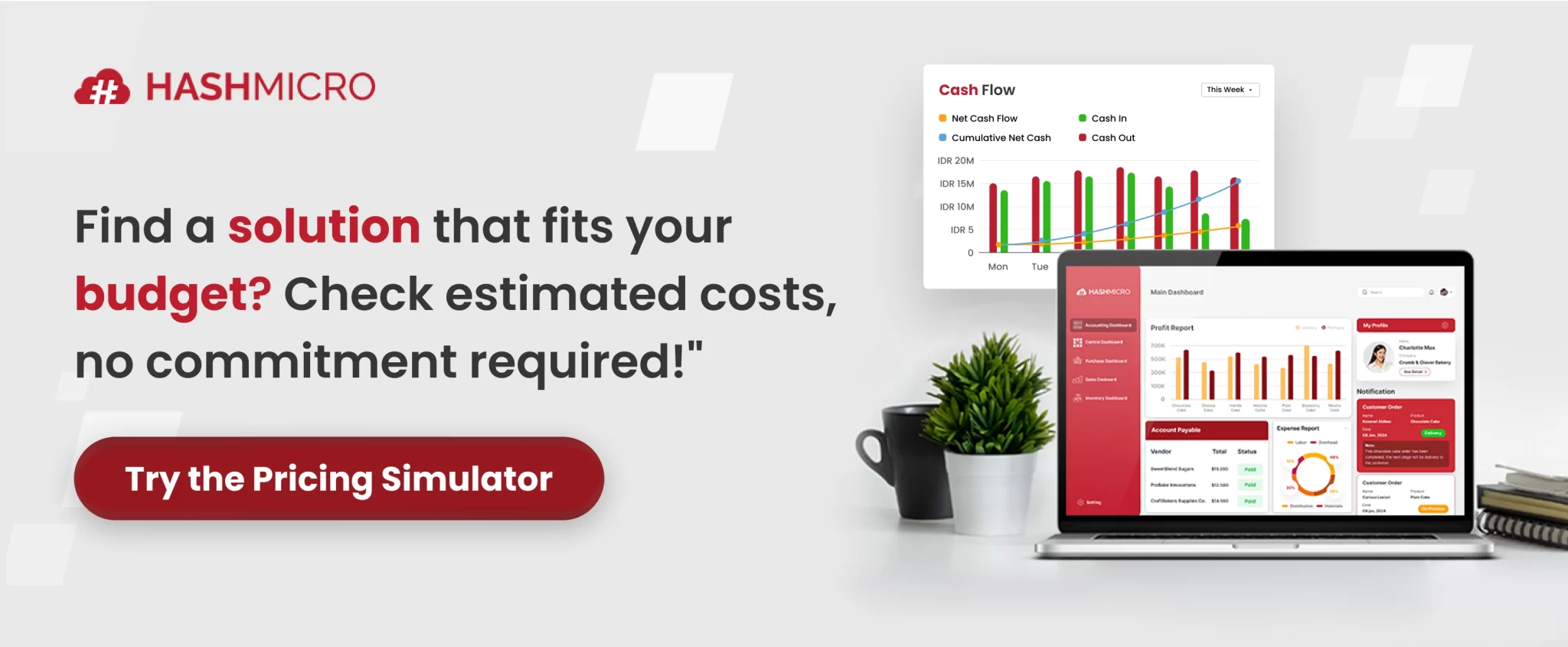Running a tea business in Singapore, I quickly realized that managing operations manually can be overwhelming. That’s when I discovered how transformative Enterprise Resource Planning (ERP) software can be for the tea industry.
ERP systems streamline business operations by integrating multiple functions into a single platform, from inventory and procurement to sales and reporting. With the right modules, I was able to optimize workflows and make data-driven decisions.
In this article, I’ll explore the key benefits that ERP brings to tea businesses and recommend some of the best ERP solutions available in Singapore that can help tea companies like mine operate more efficiently and grow faster.
Key Takeaways
|
ERP for the Tea Industry Overview
Enterprise Resource Planning (ERP) for the food and beverage industry, such as fast food and tea industry, embodies a comprehensive business management tool. It is specifically designed to confront the challenges prevalent among tea producers.
This holistic platform integrates Accounts Receivable (AR) automation and consolidates multiple business processes into a unified system. The consolidated ERP software encompasses diverse modules, such as plantation management.
With the implementation of this tea software, tea businesses are empowered to increase productivity, enhance efficiency, and effectively manage costs. Additionally, it can expedite processes to improve strategic business decision-making.
Challenges Faced by the Tea Industry
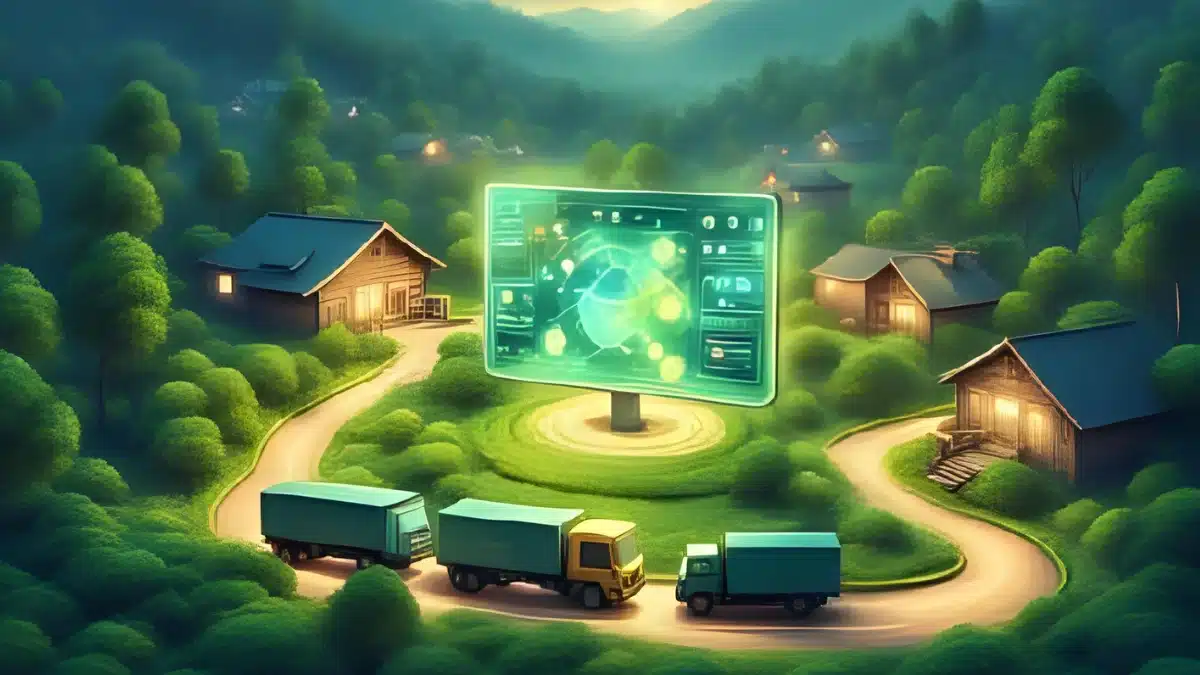 Navigating the constant shifts in consumer preferences for tea varieties and flavors is a significant challenge. Similarly, unpredictable weather patterns add another layer of complexity to the already intricate process of managing tea plantations.
Navigating the constant shifts in consumer preferences for tea varieties and flavors is a significant challenge. Similarly, unpredictable weather patterns add another layer of complexity to the already intricate process of managing tea plantations.
Furthermore, the complexity of the supply chain, which spans various growers, manufacturers, exporters, and retailers, contributes to the multitude of difficulties faced by the tea industry.
Another pressing concern is the efficient management of costs associated with labor and packaging amidst fluctuating market rates. To overcome these hurdles, an integrative, technology-driven solution like ERP software or food processing software is needed.
Why the Tea Industry Need ERP Software?
ERP software provides numerous benefits for managing the tea industry’s business processes, particularly in its manufacturing and distribution operations. Below mentioned are the key reasons why the tea industry needs ERP software.
1. Streamlined operations
ERP presents a unified platform that harmonizes all the crucial processes within the tea industry. This advanced software not only brings together disparate elements of the business but also automates overall operational efficiency.
Through the implementation of automation, the software seamlessly organizes various functions including inventory management, production management, and sales management.
In addition, it optimizes the management of production lines and fosters effective team coordination. Consequently, the ERP software serves as an integral mechanism that promotes synergy and operational fluidity.
2. Enhanced visibility and control
ERP software serves a critical role in enhancing visibility and control within tea industries. With ERP’s aid, these industries gain access to real-time visibility across all business operations.
This level of transparency allows for comprehensive oversight, which is essential in a complex industry like tea production and distribution. The ERP for tea industry equips businesses with the ability to track and monitor activities.
With these insights at their disposal, businesses are well-equipped to make effective and strategic decisions, thereby driving productivity, efficiency, and overall tea business growth.
3. Improved inventory management
Equipped with a robust Warehouse Management System (WMS), ERP for tea industry provides businesses with the tools necessary to optimize inventory levels effectively. This optimization leads to a significant reduction in stockouts and overstocking.
Furthermore, an efficient WMS enables tea companies to plan their production schedules effectively and manage stock movements efficiently. The software allows businesses to synchronize their production with demand and supply trends.
Thus, ERP software underpins a strategic approach to inventory management, driving operational efficiency and financial prudence in the tea industry.
4. Quality and compliance requirements
Quality assurance and compliance is a critical elements in the tea industry, and here too, ERP software proves to be an invaluable tool. The software offers comprehensive tracking of tea batches and enabling manufacturers to uphold stringent quality standards.
Moreover, the ERP software for tea industry is equipped with advanced features designed to ease the fulfillment of compliance requirements. The software simplifies this often complex and time-consuming process.
Consequently, this not only ensures regulatory compliance but also boosts consumer trust in the company’s products and practices.
5. Efficient sales and distribution
Coupled with the sales management system, which meticulously tracks deliveries and streamlines billing processes, the ERP platform fosters an organized, efficient sales operation.
Moreover, the software’s distribution ERP component empowers businesses to proficiently manage their processes and supply chain management. This advanced system promotes efficiency and cost-effectiveness, crucial elements for any successful business operation.
By facilitating streamlined operations and reducing costs, the ERP software effectively serves as a cornerstone for sales and distribution processes within the tea industry.
6. Financial management
With an accounts payable module incorporated within the ERP software, the management of financial processes and transactions becomes far more cost-effective and efficient.
It ensures a systematic approach to managing financial obligations, contributing to improved cash flow and budgeting. Furthermore, it facilitates financial transparency, thereby aiding in strategic decision-making.
7. Data analytics
These tools enable companies to track key performance indicators (KPIs), analyze sales trends, and examine other key metrics. Such a wealth of information forms the basis for informed strategic planning and data-driven decision-making.
Thus, the ERP software equips tea industry businesses with a powerful tool to leverage data analytics, enabling them to optimize operations, improve performance, and stay competitive in the marketplace.
Here is a table summary that discusses why the tea industry needs ERP software:
| Key Reasons Why the Tea Industry Needs ERP Software. | Description |
|---|---|
| Streamlined operations | ERP unifies the tea industry’s operations by automating processes such as inventory, production, and sales management, thereby enhancing coordination, efficiency, and overall business synergy. |
| Enhanced visibility and control | ERP provides real-time visibility across all operations, enabling tea businesses to monitor activities, make strategic decisions, and boost productivity and efficiency. |
| Improved inventory management | ERP optimizes inventory levels, reduces stockouts and overstocking, and synchronizes production with demand for operational efficiency. |
| Quality and compliance requirements | ERP tracks tea batches and simplifies compliance processes, helping maintain quality standards and build consumer trust in the company’s products. |
| Efficient sales and distribution | ERP software streamlines sales and delivery tracking, while optimizing supply chain processes to enhance efficiency and reduce operational costs for tea businesses. |
| Financial management | Integrated accounts payable and financial modules enhance cash flow, facilitating cost-effective management and informed strategic financial decisions. |
| Data analytics | ERP tools provide insights into KPIs, sales trends, and other metrics, empowering tea businesses to make data-driven decisions and optimize overall performance. |
5 Best ERP for Tea Industry
After understanding the benefits of ERP for tea industry, it is also important to know the right software for your business. Here are 5 recommendations for ERP for tea industry.
1. HashMicro

HashMicro emerges as a leading ERP provider for the tea industry, delivering a suite of benefits that perfectly align with the industry’s specific needs. Key advantages of HashMicro ERP include automatic Work-in-Progress (WIP) cost calculations.
Unlike many ERP systems on the market that are not user-friendly, HashMicro boasts a user-centric UI/UX design that facilitates easy operation, even for new users. It allows for quick configuration by users, requiring only minimal training.
Key feature of HashMicro ERP for the tea industry:
- Inventory & Procurement Control: Automates stock monitoring and procurement in real-time.
- Comprehensive Reporting: Provides analytics to enhance tea production efficiency and decisions.
- Error Reduction: Minimizes human errors in manual data input for accurate management.
- Production Planning: Streamlines scheduling and resource allocation for tea production.
- Customer Resource Management (CRM): Integrates customer data for better relationship management.
- Procurement Automation: Optimizes supplier interactions and purchasing processes to ensure smooth operations.
2. Sage
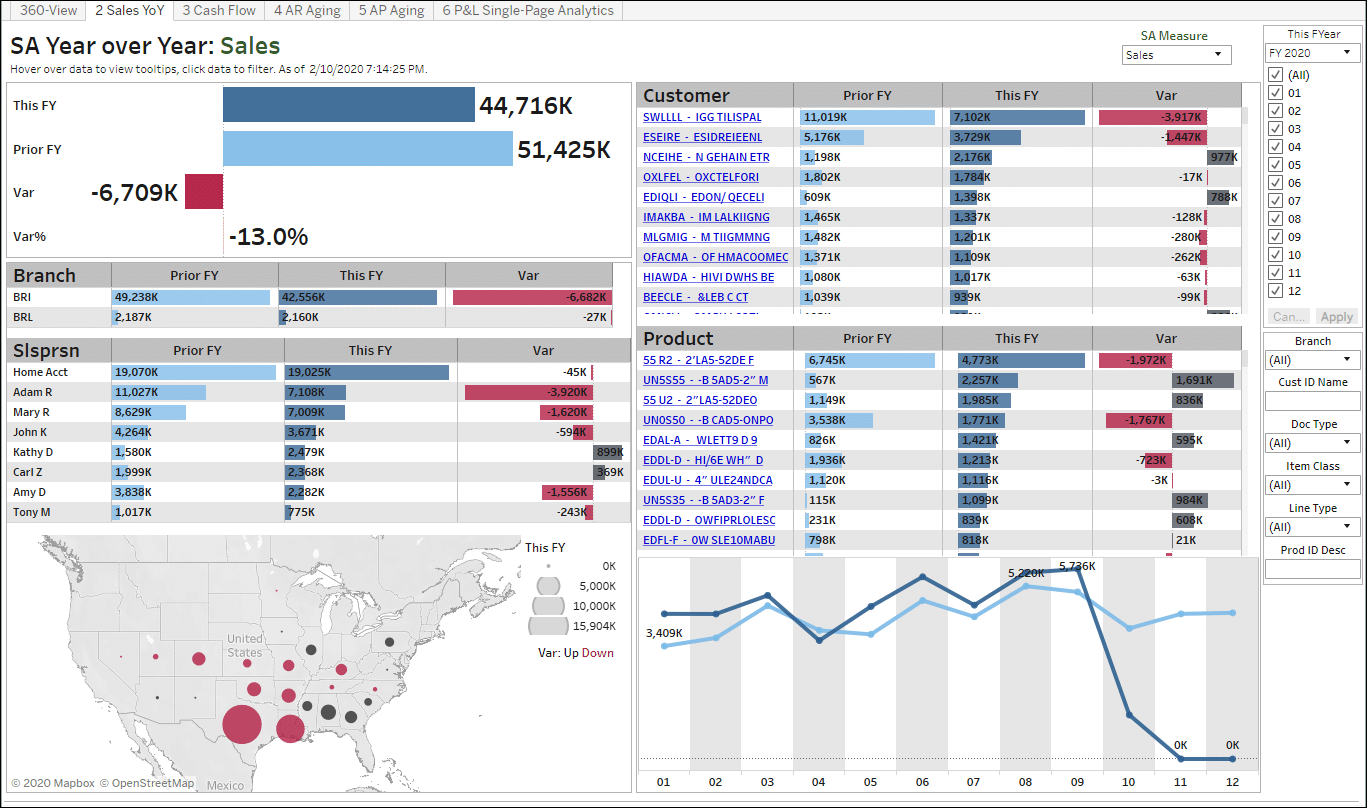
Sage X3 comprises an impressive list of functionalities, including business intelligence, inventory management, shop floor control, quality assessment, and advanced reporting and analysis.
The software also boasts a robust warehouse management system and ensures seamless integration with other systems, thereby enhancing overall operational efficiency.
With a holistic view of critical business data, Sage X3 empowers companies to make informed decisions, enabling them to be more connected, agile, and adaptable in response to shifting business needs.
3. Acumatica
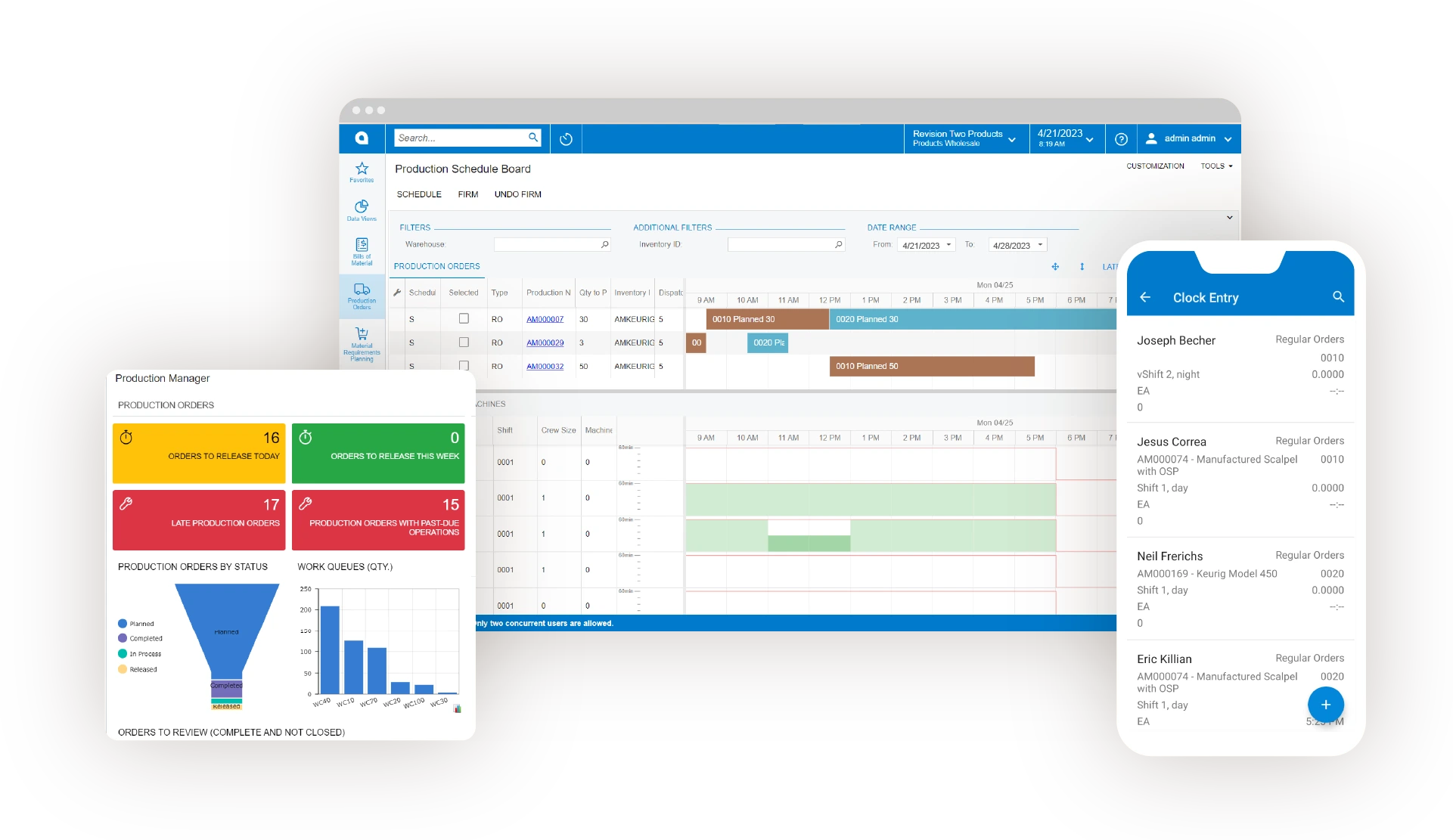
Built on a future-proof cloud platform, Acumatica paves the way for the integration of modern technologies, thereby streamlining processes and delivering meaningful insights into production and business operations.
It boasts a broad manufacturing suite encompassing features such as visual scheduling, rules-based product configuration, material planning, and native data collection with barcode scanning.
4. SAP Business One
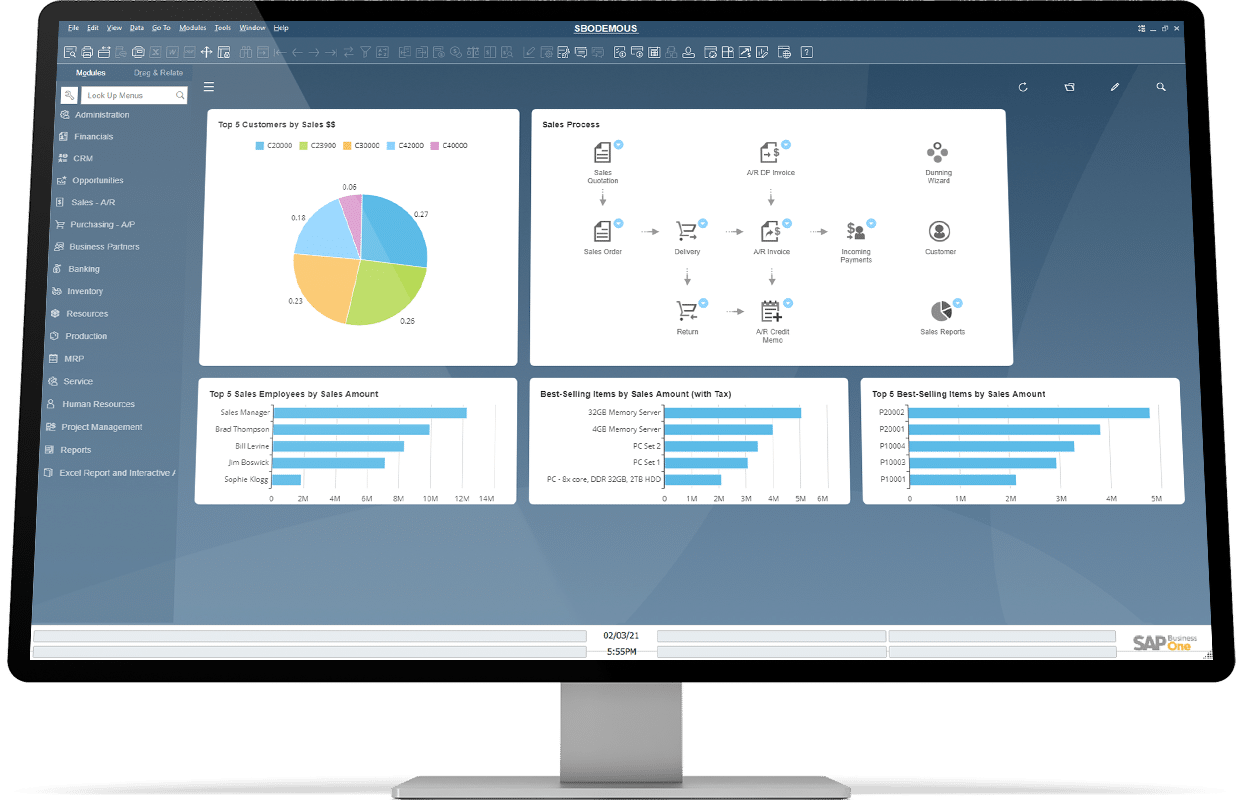
From accounting and financials to purchasing, inventory, sales, customer relationships, reporting, and analytics, the ERP solution from SAP Business One provides all-inclusive coverage of essential business processes.
SAP Business One offers the flexibility of on-premise or cloud deployment and incorporates integrated business intelligence. It also provides integration with the SAP HANA platform, which significantly enhances data processing capabilities.
Moreover, its quick deployment ensures minimal disruption to ongoing business operations.
5. ERPNext
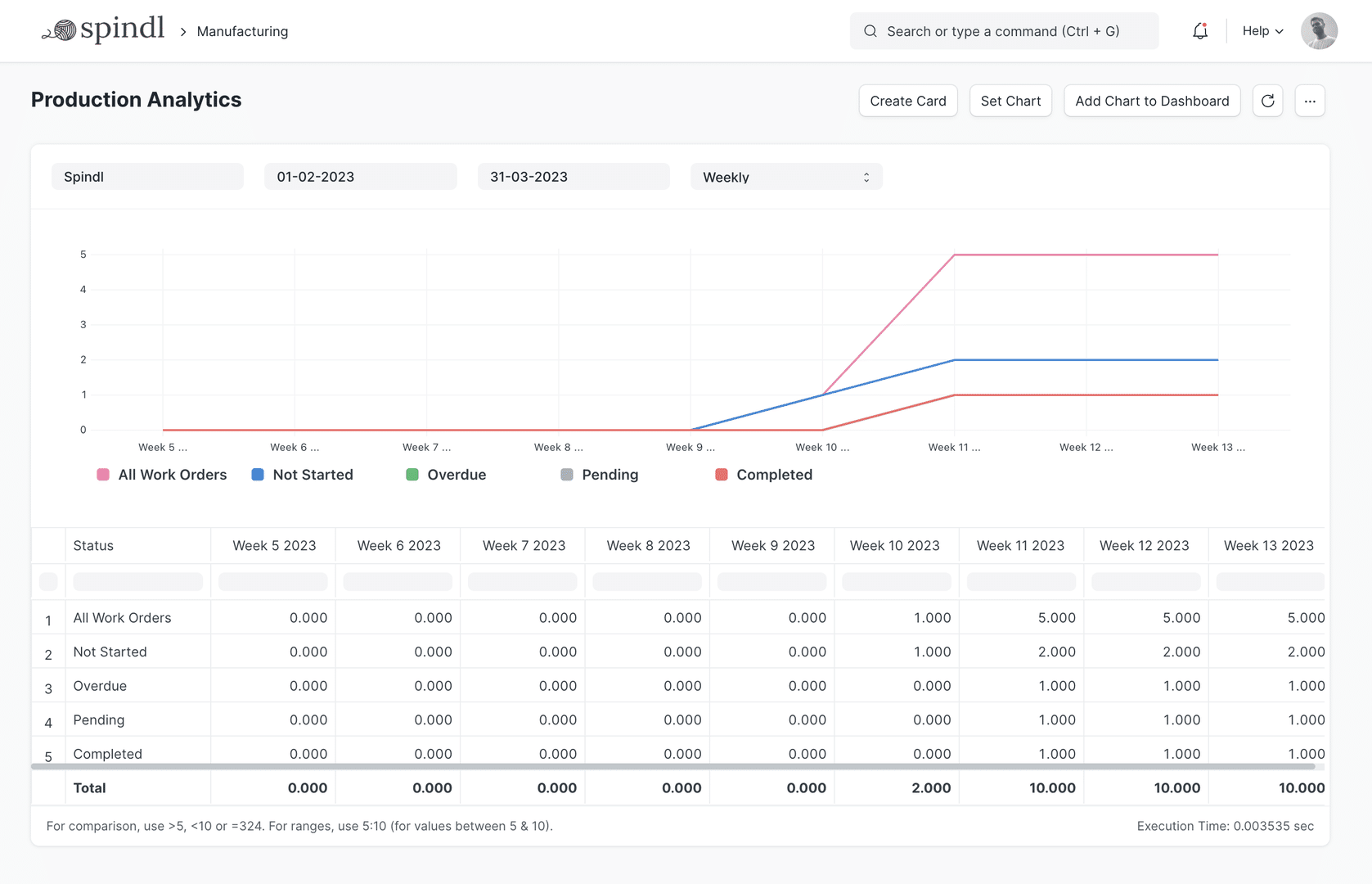
ERPNext integrates production planning and shop floor activities, enhancing coordination across all business verticals. Its capabilities span customer management, sales orders, inventory, purchasing, accounting, and financial reporting, offering a real-time view of the business.
With its hierarchical Bill of Materials (BOM), ERPNext ensures robustness and accuracy in the production process.
The software also excels in shop floor management, providing real-time status updates of job works, employee assignments, and work order progress.
Conclusion
The tea industry faces unique challenges, including managing production schedules, maintaining accurate inventory, and ensuring timely distribution. Implementing ERP software in Singapore helps businesses overcome these obstacles.
HashMicro ERP system is a highly recommended ERP solution for the tea industry, offering comprehensive features that simplify complex business processes. Its intuitive interface, integrated modules, and real-time analytics allow tea businesses to optimize production.
For those considering implementation, HashMicro offers a free demo to explore its capabilities firsthand. Additionally, businesses applying for the CTC Grant can enjoy up to 50% off.

Frequently Asked Questions
-
Which industry uses ERP the most?
ERP systems are well-suited to handle the complex orchestration of supply chain management, inventory management, and workflow management required of modern manufacturers.
-
What is the ERP system in the food industry?
ERP stands for Enterprise Resource Planning and refers to a software system for business management. An ERP system enables food companies to manage and optimize their business processes, encompassing purchasing, accounting, finance, human resources, production, and logistics.
-
What is the future of manufacturing ERP in 2025?
The future of manufacturing ERP in 2025 is not merely automating the job, but also one that is smart, flexible, and integrated. As ERP software evolves to become more intelligent and agile, manufacturers will be able to react more swiftly to market shifts, optimize their operations, and foster innovation.





